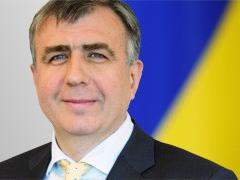Blog
Modern Russian cognitive warfare grew out of the Soviet concept of “active measures”
A few days ago, Foreign Policy published an article: “Russia’s War is Also a Cognitive War,” which states that the Kremlin’s modern aggression goes far beyond the traditional battlefield, with Russia systematically waging a war for minds, influencing the thinking, decisions, and actions of both enemies and allies. This cognitive war is not limited to disinformation or propaganda; it permeates the media, diplomacy, the expert community, international conferences, and “peacemaking initiatives.”
Its goal is not only to demoralize Ukraine, but also to weaken the West’s political will to act: to force it to doubt, postpone decisions, and seek compromises on the Kremlin’s terms. Against the backdrop of the protracted war in Ukraine, growing information noise, fatigue in Western society, and political debates about the limits of assistance to Kyiv, the Kremlin has activated new forms of influence that operate not at the level of facts, but of thinking, emotions, and decisions. Russia is increasingly not only attacking physically, but also trying to make the enemy stop, hesitate, and lose the will to act. In these conditions, Western leaders are faced with an unobvious but dangerous threat: instead of direct threats or blackmail, Moscow offers “reasonable compromises,” relays messages about the “need for negotiations,” and uses international platforms, diplomacy, media, and loyal experts for soft but systemic influence. It is in this environment that cognitive warfare becomes a key tool with which Russia is trying not only to preserve Putin’s regime but also to redirect the course of the global confrontation in its favor without firing a single shot.
 1378 views
1378 views
The published material is copyrighted. The opinions expressed in the author's blog may not coincide with the position of the editors of the «Voice of Crimea» IA.















